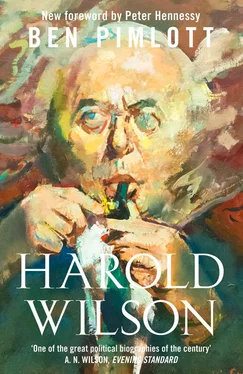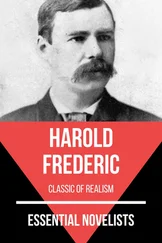Yet, in office, he persuaded successive Cabinet committees and finally the full Cabinet that Polaris should be purchased for the Royal Navy, whose submarine service would operate four boats to ensure that at least one was at sea at all times – so-called ‘continuous at-sea deterrence’, which has been maintained from 14 June 1969 to today, ever since the Navy took over the strategic deterrent role from the ‘V’ bombers of the Royal Air Force. 15Once more there are resonances for the present era of Labour leadership. Jeremy Corbyn, currently Vice-President of CND, has been a unilateral disarmer all his political life. His shadow Foreign Secretary, Hilary Benn, and his shadow Defence Secretary, Maria Eagle (at the time of writing), are adherents of the still current Labour policy of replacing the Trident missile-carrying Vanguard-class submarines with sufficient so-called ‘Successor’ boats to sustain continuous at-sea deterrence into the 2050s. Yet the nuclear policy with which Labour will fight the 2020 general election is far from clear given its leader’s connections (he has already made plain he would never authorise its use 16) and the party’s current defence review jointly led by Maria Eagle and the anti-nuclear Ken Livingstone. The names may have changed but the nature and line-ups of this debate would be deeply familiar to Wilson.
So would another nerve-stretching element in the 2016 political season – Europe and the referendum. Vernon Bogdanor has made the very shrewd observation that Harold Wilson is one of the very few British prime ministers who has not, in one way or another, been eaten up by the European Question (despite the failure of that second EEC application) because of the way he handled the 1975 referendum on whether the UK should leave the EEC or remain, just two and a half years after acceding to it in January 1973. Bogdanor believes that this was ‘perhaps Wilson’s greatest triumph’, 17a bold claim that has much in it, especially as he also described Wilson’s position on the EEC in the early 1970s as ‘unheroic’. Professor Bogdanor recalled that when Roy Jenkins, then Deputy Leader of the Labour Party, resigned from the Shadow Cabinet in 1972, after Labour promised a referendum on Common Market membership if returned to power, with others following,
Wilson told the Shadow Cabinet that while they had been indulging their consciences, it had been left to him to wade through s**t [to keep the Labour Party together]. Yet Bernard Donoughue, head of Wilson’s Policy Unit after 1974, was surely right to say that while Heath had taken British Establishment into Europe, 18it was Wilson who brought in the British people. 19
A justifiable claim given the two-thirds-to-one-third vote in 1975 to stay in. But, as Professor Bogdanor noted, in the run-up to the coming remain/leave referendum in 2016 or 2017, ‘the British establishment remains firmly attached to Europe, even though the people remain full of doubts’. 20
The European question has been a near-perpetual of the UK’s national political conversation since Jean Monnet turned up almost out of the blue in London from Paris in May 1950 bearing his and Robert Schuman’s plan for a Coal and Steel Community. 21It has been a particularly vexing element in our political biorhythms ever since, not least because it cannot be cast in the traditional left–right mould that normally shapes our party political competition.
Gazing wider than Europe, how does Harold Wilson fit the standard model of British politics since he entered the House of Commons in 1945? First of all, what is the ‘standard model’? In my judgement, it’s this: post-war UK electoral competitions have seen a jostling for pole position between liberal capitalism (in my view, the best instrument for innovation and economic growth so far discovered) and social democracy (the best mechanism so far created for redistribution and a measure of social justice). The voting public tends to wish for a judicious mix of each, and the job of Parliament and Whitehall is to attempt to achieve this by reconciling and blending these two philosophies. Occasionally, the electorate votes for a sharp dose of one rather than the other.
Early Wilson benefited from a ‘sharp dose’ phase if you take the general elections of 1964 and March 1966 (when Labour’s majority shot up to ninety-seven) together. It was, along with 1945 and, perhaps, 1997, one of the shining opportunities for radical centre-leftist policies in the UK. In June 1970 when, to near universal surprise, Wilson lost to Ted Heath, who was propelled into Downing Street by a Conservative majority of forty-four, it appeared the electorate had plumped for a shot of liberal capitalism (if the Tory manifesto A Better Tomorrow22 was to be believed). But the Heath U-turns, in the face of unemployment nudging a million people (a shocking statistic for the first fifteen or twenty years after the war), rather belied the free-market impulses of the 1970 prospectus.
The general election of February 1974, which Heath called on the back of the second miners’ strike inside two years, did not produce a shining hour for either of the competing political philosophies. Heath went to the country in a mood of ‘Who governs?’, and the electorate replied ‘Not sure’ twice, with Wilson taking office at the head of a minority government in March 1974 and with the slimmest of overall majorities in October 1974. Though his last administration tried to reach a new deal with the trade unions (the ‘social contract’) and offered a mildly interventionist industrial strategy, it was a time for coping, for getting by rather than for white – or any other – heat. With inflation around 25 per cent and the balance of payments reeling from a quadrupling of world oil prices following the 1973 Yom Kippur War, Wilson’s extraordinary array of political gifts was almost entirely devoted to holding the line through yet another incomes policy (which is why it is easy to forget just how skilfully he played his party and the country in the run-up to the 1975 referendum on Europe).
I have concentrated in this foreword on the special selling points Wilson displayed before the electorate in the promising glow of his first leadership of the Opposition and his early days as Prime Minister, as well as the extraordinary feat of party and wider political management he exhibited in 1975 (‘and people say I have no sense of strategy’, he said to his Principal Private Secretary, Ken Stowe, once the result was in 23). But rereading Ben’s biography brings back just how relentlessly demanding the job of prime minister is. The crises are endless and Pimlott’s pages crackle with Wilson-the-crisis-manager. There was the perpetual problem of holding the thin red line of the sterling exchange rate in the 1964–70 government, when the seemingly constant balance of payments problems placed, as soon as they seriously deteriorated, instant pressure on the pound as the world’s second reserve currency after the US dollar in that age of Fixed exchange rates From November 1965 there was the running sore of Rhodesia after the Smith government unilaterally declared independence, presenting Wilson in both his Downing Street spells with one of the most stretching problems created by the withdrawal from Empire. And from 1968–69 a recrudescence of the Troubles in Northern Ireland was another great absorber of time and political nervous energy. And all the while, throughout his premiership, the ever-present perils of the Cold War lurked.
It is not surprising, therefore, that when he finally announced he was standing down, just days after his sixtieth birthday, he was worn out – if still chirpy in his pawkier moments – having sat almost continually on Labour’s front bench since the late summer of 1945. His longevity at or near the top of his party, his temperament, his gifts, his cockiness combined with social edginess – the sheer variety of Harolds he could put on display according to need or taste – made him the richest of characters for the biographer’s art. And in Pimlott on Wilson, subject and biographer were supremely well met.
Читать дальше











